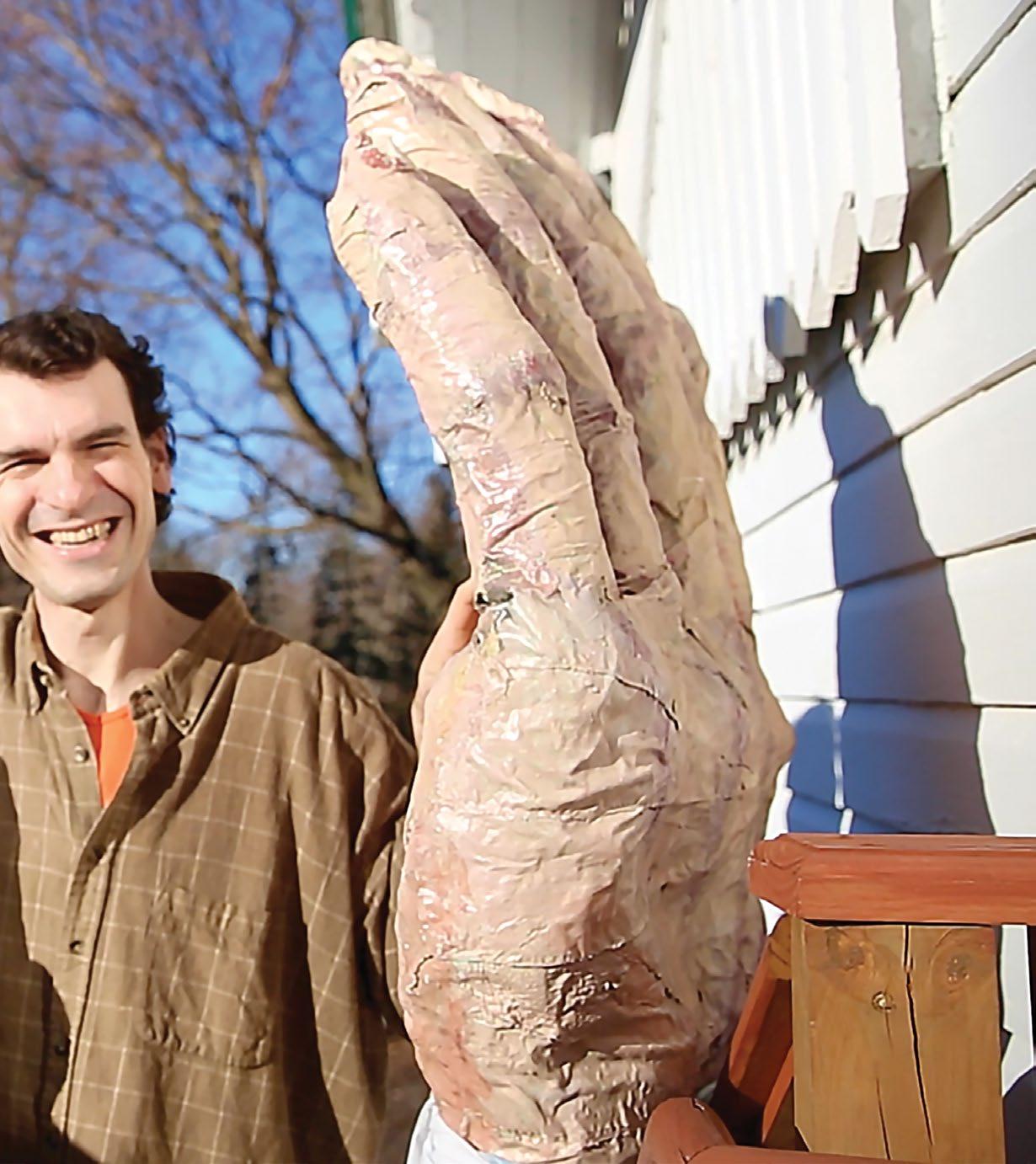
3 minute read
Redemption of the Animals
The Redemption of the Animals: Their Evolution, Their Inner Life, and Our Future Together. An Anthroposophic Perspective. Douglas Sloan, PhD. Lindisfarne Books, 2015.
Review by Olena Provencher
The modern Western materialist paradigm has devolved into post-modern disenchantment in which even the question of meaning is considered meaningless. The global ecological crisis has shown that reason alone is inadequate for solving contemporary problems. The ideal remedy to destructive materialism and its ecological by-product would seem to be a spiritual perspective, such as developed in Douglas Sloan’s compelling case for human responsibility towards animals in the light of Anthroposophy.

Previous volumes by Douglas Sloan, Professor Emeritus of History and Education at Teachers College, Columbia University, include: "Toward the Recovery of Wholeness: Knowledge, Education, and Human Values" (1984), and "Insight-Imagination: The Emancipation of Thought and the Modern World" (2008). This is his first work on the plight of the animal kingdom in the world expropriated by humans.
Sloan begins with a brilliant and deeply substantiated critique of the modern mechanical worldview, and specifically on the Darwinian evolutionary perspective. He writes that we long for feelings of “meaning, purpose, beauty … and subjectivity,” while utterly denying these in our theoretical “scientific thinking” (16). Sloan demonstrates how the scientific and philosophical proposals of Locke, Darwin, and Bentham have become an intellectual “military arsenal” of modern western consciousness. Half-unconscious egotism irresponsibly succumbs to a “might is right” approach to values. The view of animals as unfeeling automatons, made for human “gastrocentric pleasure,” convenience, and entertainment constitutes what ethologists (the scientists who study animal behavior) refer to as speciesism: an acute expression of human superiority in relation to non-human species.
Sloan then offers a summary of Rudolf Steiner’s supersensory view of animals. Steiner’s disciplined clairvoyance, supported by his Theosophical studies, enabled him to generate an important, even urgent account of the origin and evolution of the human-animal relationship.
Sloan summarizes Steiner’s account of the unselfconscious proto-earthlings who originated in the spiritual realm and come to proto-Earth to begin their evolutionary journey. These proto-earthlings, whom Sloan refers to as “human archetypes,” are shown to be the ancestors of both humans and animals.
Sloan traces the evolution of animal types from the archetypal “primate” form to non-primate mammals, to birds, and cold-blooded vertebrates. Such an account enables us to visualize, contrary to Darwin, an archetypal human body-structure in animals. Sloan explains that pets survive after death. The budding individual souls join an elemental being which Steiner called the Salamander, as its temporary carrier, and from that energic, nurturing vantage place, assist human souls in attaining true compassion.
The chapter on factory farming and biomedical research is definitely hard to read but it is necessary because it radically exposes the human evil that causes horrific suffering to innocent animals.
This important book concludes with Sloan’s plea to the reader to take a fully humane position of guardianship and servantship towards animals.
My only critique of this book is connected with Sloan’s final proposal of guardianship. I recall that a very similar proposal was already made, based on the reexamination of Genesis, within the framework of orthodox Christianity, particularly through the work of eco-feminists. Carolyn Merchant, for example, formulated the egalitarian ethics of a partnership of humanity and nature, very similar in spirit to Sloan’s. (C. Merchant, "Reinventing Eden: The Fate of Nature in Western Culture", Routledge, New York, 2003, 228). The partnership-guardianship proposal certainly introduces the idea of equality between human and nature, but her book is not about animals. On the other hand, the ethics of guardianship may be porous to the very same human evils of domination which Sloan so passionately raises; it leaves unclear the boundaries of human rights over animals.
Then what is the point of this critique? Sloan’s deep engagement with Steiner’s esoteric narrative, which traces phenomena to their ultimate roots, could come to fruition in a more integral proposal, such as an idea of a parental relationship towards animals. Parental, for we gave the animals their initial forms, and we are (or are supposed to be) at a more mature stage of individual development. Such reading would also steer us away from notions of superiority and othering still pervasive in our relation to animals. My critique, however, is minor in comparison to the merits, the main of which is the general direction of the book: its strong and courageous impetus towards the re-enchantment of the world. That seems to be the only cure for the meaninglessness that breeds violence and self-indulgence toward Earth, and perhaps especially toward animals.
Olena Provencher is a Doctoral Student, Philosophy, Cosmology, and Consciousness, at the California Institute of Integral Studies (CIIS).










